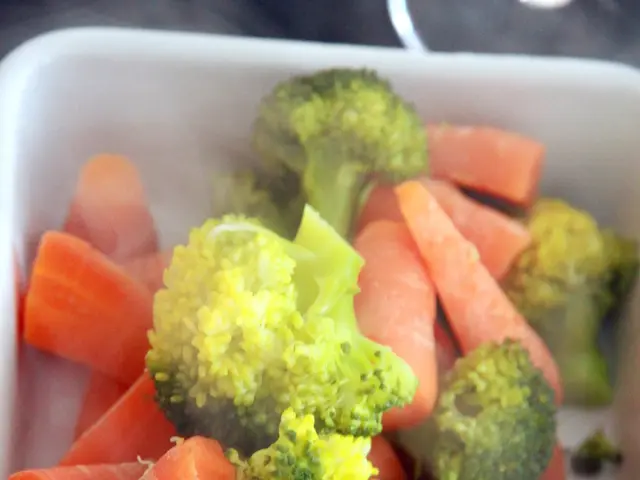Eight Strategies for Nourishing Skin during the Cold Season
Winter's here, and so is dry, flaky skin! Winter can be a nightmare for our skin, turning it into a cracked, itchy, and uncomfortable mess. Harsh winter conditions can damage our skin, leaving it dry, irritated, and even painful. A little extra care is needed to protect our skin during the winter months.
Here are some effective tips for hassle-free winter skin care:
SKIN DISTRRESS SIGNS:
- Dryness
- Flaky skin or rough texture
- Cracks on the skin
- Redness
- Painful or stinging skin
- Itchiness
- Wrinkled skin with loose texture
- Skin irritation
- Peeling skin
9 TACTICS TO NAIL WINTER SKIN CARE:
1. KEEP YOUR SKIN MOISTURIZED:
Regardless of whether you have oily, normal, or dry skin, skin moisturization is a crucial part of any winter skin care routine. Moisturizing helps replace the natural oils lost through bathing, washing, or cleansing, keeping your skin hydrated, healthy, and supple. Opt for natural moisturizers like coconut oil, aloe vera, olive oil, buttermilk, or cocoa butter.
2. REFINE YOUR SKIN CARE REGIME:
If your facial skin appears particularly sensitive or dry due to the dry winter air, consider simplifying your skin care routine for the time being. Use just a moisturizer and sunscreen. Once your skin is healthy, you can reintroduce your treatment products. During winter, cream-based cleansers and products are preferable, while toners and astringents should be used sparingly as they contain alcohols that can dry out your skin.
3. APPLY SUNSCREEN DAILY:
Sunscreen is important year-round, not just during summer! Even in winter, the ozone layers thin out, leaving us with less protection against UV rays. These rays can damage your skin's moisture barrier, essential for skin health and hydration. The American Academy of Dermatology Association recommends using sunscreen with at least SPF 30.
4. GO FOR OVERNIGHT TREATMENTS:
Emollients and occlusive are excellent for overnight skin repair. These treatments help keep your skin soft and hydrated by taking longer to absorb into the skin. Apply them at night to give your skin plenty of time to benefit from their moisturizing properties.
5. STAY HYDRATED:
During winter, we tend to drink less water. This can leave our skin (and us) dehydrated. To keep your skin healthy and glowing, stay hydrated throughout the day. Inadequate hydration can make skin more prone to dryness.
6. AVERT SCRUBBING AND SCRATCHING:
While skin exfoliation might be part of your routine, avoid it when your skin is cracked and dry. Scratching excessively can lead to bleeding and bruises. Try gentle chemical exfoliation instead. Scrubs with large particles can damage your skin's moisture barrier during winter.
7. CHOOSE GENTLE SKIN CARE PRODUCTS:
Choosing the right moisturizer, soap, body wash, face wash, exfoliators, and cleansers is vital for winter skin care. Opt for products suitable for your skin type. These should help retain the natural oils and moisture in your skin. Use less soap overall and only lather your hands, armpits, genitals, and feet when necessary.
8. DRESS COMFORTABLY:
Avoid harsh materials and tight clothing during winter. Opt for soft cotton clothing to let your skin breathe. Additionally, many clothes are washed with harsh detergents and chemicals, so be mindful of that as well.
9. LIMIT BATHING TIME:
Long, hot water showers may feel inviting in winter, but they can leave your skin dry. Take short, warm showers to protect your skin. After bathing, dry yourself off well and moisturize immediately to lock in moisture.
FOOD FOR SMOOTH SKIN:
1. NUTS AND SEEDS:
Rich in essential fatty acids, nuts and seeds help strengthen the membranes of skin cells, keeping out toxins and locking in moisture. They also contain omega-3 fatty acids, which are beneficial for skin health.
2. JAGGERY:
Known for generating heat in the body during winter, jaggery helps keep you warm from the inside out. It also contains glycolic acid, which smoothes skin texture for a soft, supple appearance.
3. TOMATOES:
Containing vitamins and nutrients like lycopene and antioxidants, tomatoes can repair damaged skin cells, restore a healthy glow, and deep cleanse skin. They also help balance skin pH levels, preventing dryness and minimizing acne.
4. GHEE:
Rich in essential fatty acids, ghee nourishes the skin, aids in hydration, and supports overall health according to Ayurveda.
5. AVOCADO:
Packed with healthy fats, vitamin A, biotin, and vitamin E, avocado nourishes and hydrates the skin, promotes a healthy glow, and aids in slowing visible signs of aging.
6. GREEN VEGETABLES:
High in vitamins A, C, and K, green vegetables help repair skin tissues, reduce free radical damage, and give your skin a natural glow during winter.
By following these tips, you'll be able to keep your skin soft, supple, smooth, hydrated, and vibrant throughout the winter season. And don't forget, a healthy skin care routine is about more than just what you put on your skin—it's also about what you put into your body! A hydrated diet and nutrient-rich foods can do wonders for your skin.
- Incorporating a nutrient-rich diet, such as consuming nuts and seeds with essential fatty acids, jaggery for internal heat and glycolic acid, or green vegetables for their high vitamin content, contributes to the overall health and vitality of skin during winter.
- By opting for gentle skin care products, like cream-based cleansers and moisturizers suitable for skin types, and avoiding harsh scrubs, one can protect their skin's moisture barrier from damage during the dry winter months.
- Adhering to a lifestyle that promotes skin care and health, such as appropriate dressing, limiting bathing time, and applying sunscreen daily, can help maintain healthy, hydrated, and soft skin throughout the winter season.








